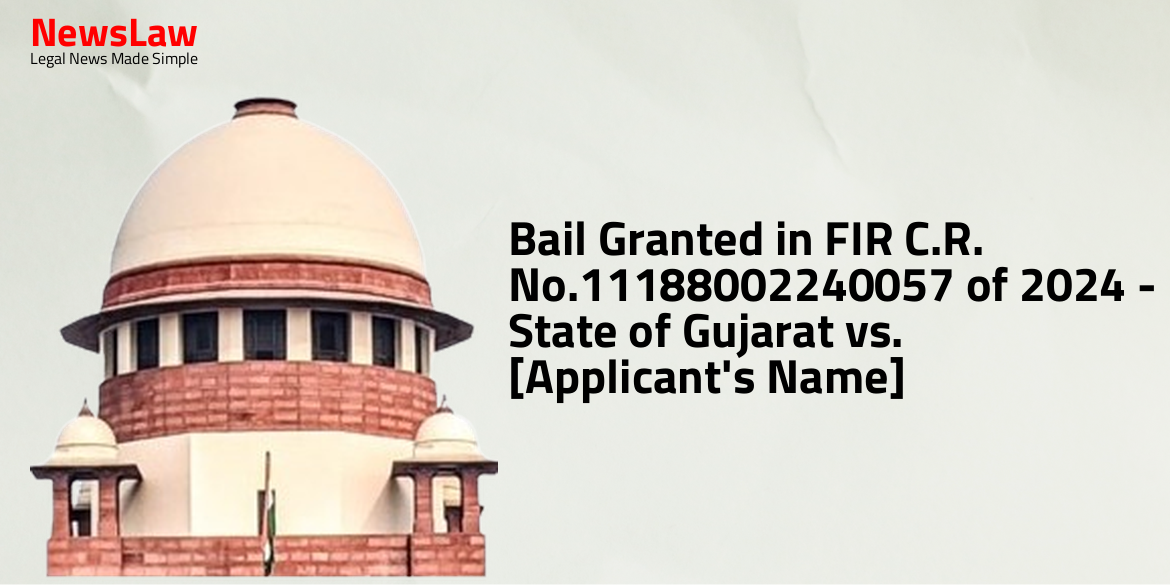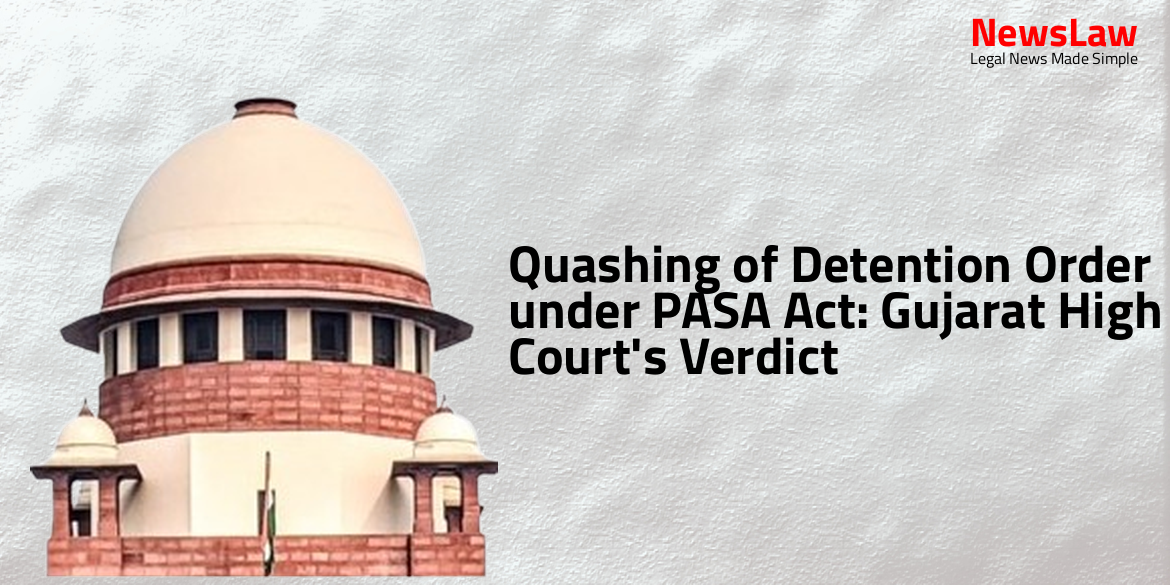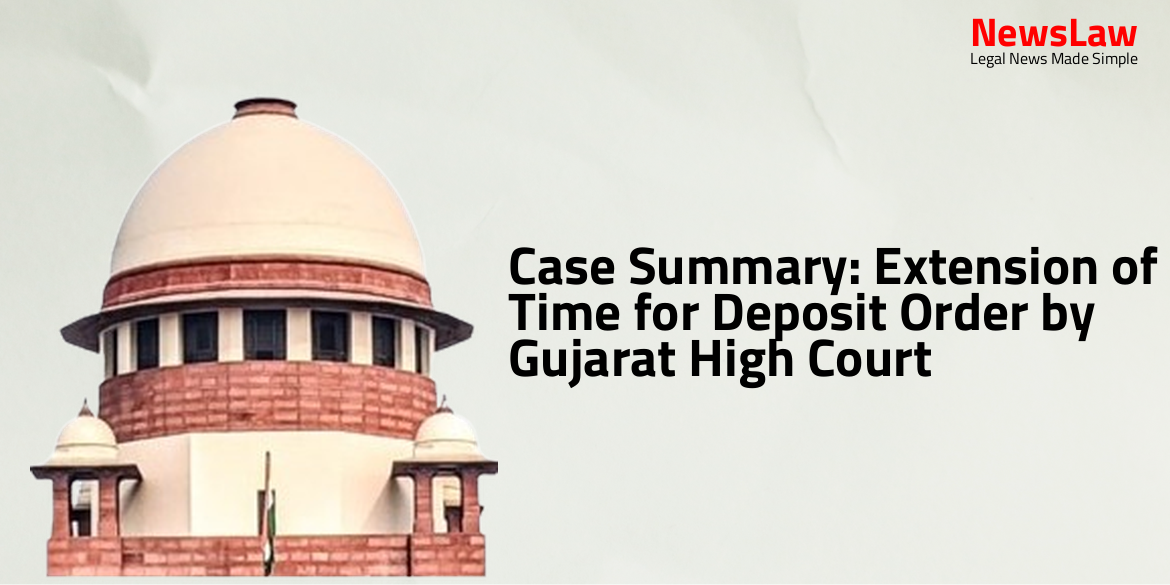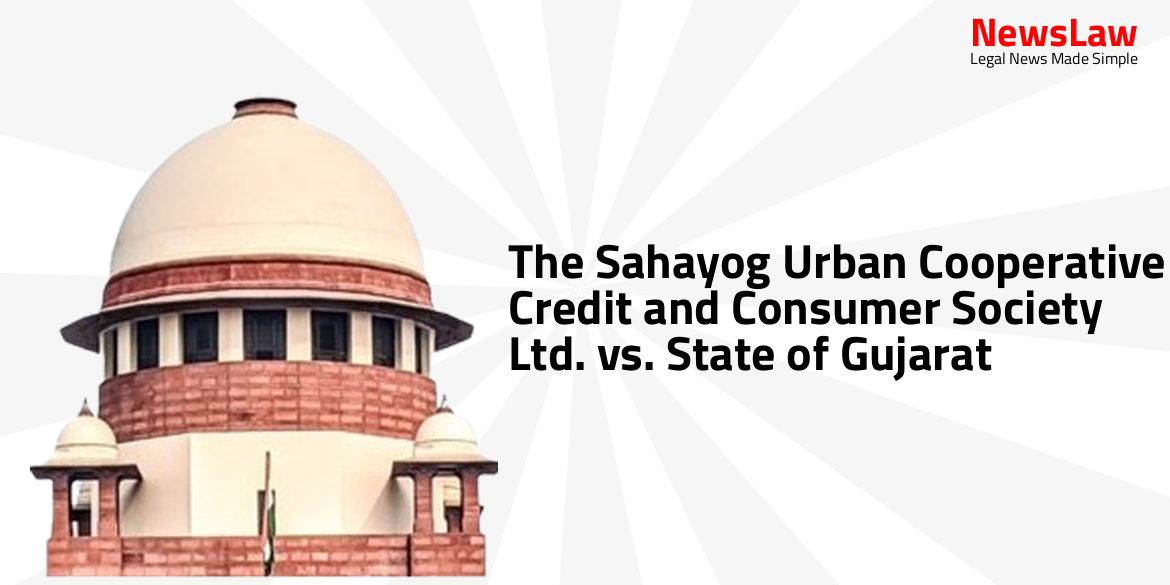In a recent ruling by the Gujarat High Court, bail has been granted in the case of FIR C.R. No.11188002240057 of 2024. The respondent, State of Gujarat, and the applicant, [Applicant’s Name], were at the center of the legal battle. The Court has set forth specific conditions for the bail, considering the nature of the offences alleged. Read on to learn more about this significant judgement.
Facts
- Application filed under Section 439 of the CrPC for regular bail in connection with FIR C.R. No.11188002240057 of 2024.
- Offences punishable under Sections 302, 325, 323, 504, 506(2) and 114 of IPC and Section 135 of Gujarat Police Act.
- Incident occurred on 19.01.2024, FIR lodged on 24.01.2024, applicant arrested on 14.03.2024.
- Investigation completed, chargesheet submitted, applicant in judicial custody.
- Learned advocate for applicant submitted the above points to support the bail application.
- APP waived service of notice of rule for respondent – State of Gujarat.
Arguments
- Nature of the offence is considered
- Applicant may be granted regular bail
- Suitable conditions to be imposed
- Role of the present applicant is clearly spelt out in the chargesheet.
- The present application may not be entertained based on the role described.
- Both advocates representing the parties do not press for further reasoned order.
- The learned APP for the respondent-State opposes granting of regular bail considering the nature and gravity of the offence.
Analysis
- Alleged incident took place on 19.01.2024, FIR registered on 24.01.2024.
- No explanation provided for the delay of five days in registering the FIR.
- Applicant participated in the investigation.
- Applicant arraigned as accused no. 3, alleged to have provoked other co-accused.
- No recovery or discovery at the instance of the present applicant required.
- Considered allegations and role played by the applicant.
- The Court considered the law laid down by the Hon’ble Apex Court in the cases of Sanjay Chandra v. Central Bureau of Investigation and Satender Kumar Antil v. Central Bureau of Investigation & Anr.
- Without discussing the evidence in detail, the Court found it to be a fit case to grant regular bail to the applicant.
- The applicant is ordered to be released on regular bail in connection with FIR C.R. No.11188002240057 of 2024 from Bayad Police Station, Dist. Aravali.
- The applicant must execute a personal bond of Rs.15,000/- with one surety of the like amount.
- The bail is subject to conditions such as not misusing liberty, not acting against prosecution’s interest, surrendering passport if any, not leaving Gujarat without court permission, and marking presence at the Police Station on alternate Mondays for six months.
Decision
- The applicant is restrained from entering into the village Hamirpur, Tal: Bayad, Dist. Aravali for a period of four months, except for marking presence and attending Court proceedings.
- The applicant must provide the Investigating Officer and the Court with their present address of residence when executing the bond and should not change the residence without prior permission.
- The applicant will only be released if not required in connection with any other offence at that time.
- If there is a breach of any of the conditions, the Sessions Judge concerned can issue a warrant or take appropriate action.
- The bail bond must be executed before the lower Court with jurisdiction over the case.
- During the trial, the trial Court should not be influenced by any preliminary observations made by this Court while granting bail.
- The concerned Court has the authority to delete, modify, or relax any of the conditions as per the law.
- The investigation is completed.
- The rule is made absolute to the aforementioned extent.
- Direct service is permitted.
Case Title: PANKAJBHAI PRATAPBHAI ZALA Vs. STATE OF GUJARAT
Case Number: R/CR.MA/9493/2024



